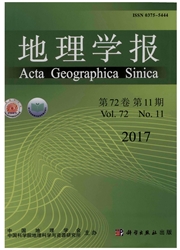

 中文摘要:
中文摘要:
旅游地居民态度研究是国外旅游社会学、旅游地理学研究的主要内容之一。国内外已有的研究中大多是从旅游社区整体的视角来研究居民对旅游发展影响的感知与态度,而从旅游地居民个体视角的研究很少。通过对九寨沟旅游社区居民个体的深入调查与访谈,应用聚类分析与判别分析,根据居民对旅游影响感知与旅游发展态度的观点,将居民划分为理性的、片面的、恼怒的和积极的支持者4种类型。经过对居民个体的人口统计学特征和社会属性特征进行方差分析发现,年龄、个人就业部门、家庭与旅游发展之间的经济关系是影响居民个体旅游发展感知与态度的主导因素。
 英文摘要:
英文摘要:
Re,arch on resident attitudes in destination has been one of the key issues of Tourism Sociology and Tourism Geography abroad. Relevant literatures have been generally focused on community studies. They assess resident reaction to tourism at the local level and using the overall level of agreement as a measure of support for the industry. However, studies from individual perspective are rare till now. Based on the case. study of Jiuzhaigou, we first divide residents into four clusters, i.e. rational, unilateral, somewhat irritated and enthusiastic supporters, according to their opinions to tourism impact and attitudes by cluster analysis and discriminant analysis, and then we search for variation at the individual level of respondents and assess the effect of socio-demographic attributes of the individual by variance analysis. Conclusion can be drawn that resident attitudes to tourism have key relations to the age, employment section and benefits from the industry. There-fore, it is of great importance for destination that residents should be encouraged to participate in tourism development.
 同期刊论文项目
同期刊论文项目
 同项目期刊论文
同项目期刊论文
 期刊信息
期刊信息
